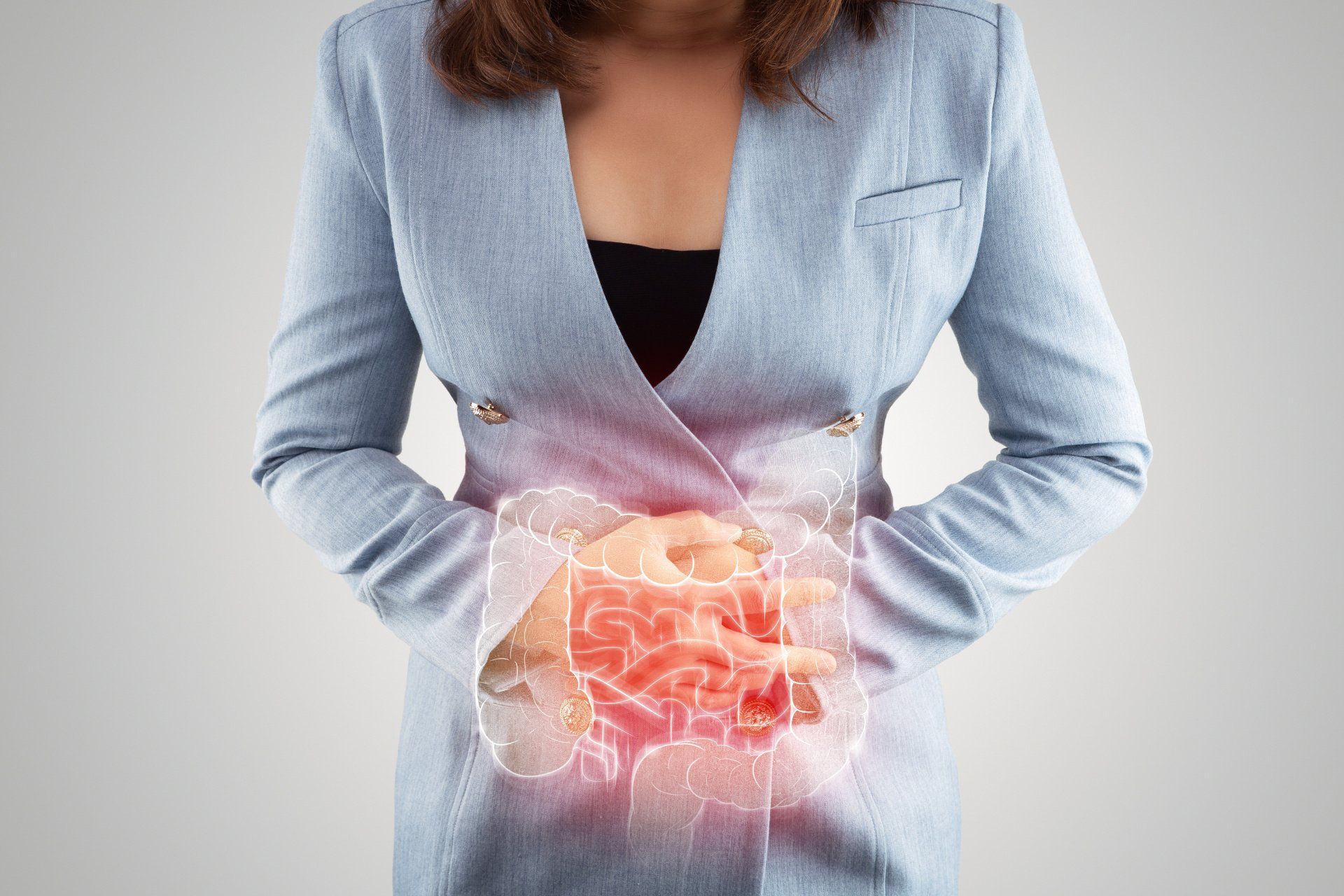What are the early symptoms of bowel cancer?
Bowel Cancer
Bowel cancer is generally referred to as colorectal cancer. It affects the large bowel, which is made up of the colon and rectum. It’s the fourth most common cause of death from cancer across the United Kingdom, and the second leading cause of death from cancer in older people.
The bowel is split into 2 parts - the small bowel and the large bowel. The large bowel includes the colon, the rectum and the bowel opening (anus).
Cancer of the small bowel is a type of cancer that affects the digestive system. It can start in any section of the small intestine, but most commonly occurs in the lower part of the small bowel (the duodenum), which connects to your stomach. This disease is not as common as other types of cancer, such as breast cancer or prostate cancer, but it is still deadly if not diagnosed and treated early.
And the food we eat ends up in the large bowel where water and some nutrients are absorbed leaving waste. This passes through the bowel before leaving the body.
The most common type of bowel cancer affects the large bowel, which includes the colon and the back passage. Large bowel cancer is also sometimes called colorectal cancer.
Bowel cancer starts when something goes wrong in a cell and it starts growing uncontrollably to form a tumor. More than 9 out of 10 people who develop bowel cancer in the UK are over the age of 50.
Symptoms of Bowel Cancer:
- Bleeding from the back passage (rectum) or blood in your poo
- A change in your normal bowel habit, such as looser poo, pooing more often or constipation
- A lump that your doctor can feel in your back passage or tummy (abdomen), more commonly on the right side
- A feeling of needing to strain in your back passage (as if you need to poo), even after opening your bowels
- Losing weight
- Pain in your abdomen or back passage
- Tiredness and breathlessness caused by a lower than normal level of red blood cells (anaemia)
If you are experiencing any of the symptoms above, it is important to see your doctor. It might turn out that your symptoms are caused by another condition, but if bowel cancer is diagnosed early, it is more likely to be cured. But even if your doctor says there’s nothing wrong with you, have a check on a regular basis so that the doctor can monitor for further changes.
Sometimes cancer can block the bowel. This is called a bowel obstruction. The symptoms include:
- Cramping pains in the abdomen
- Feeling bloated
- Constipation and being unable to pass wind
- Being sick
Bowel obstruction is a life threatening cancer condition. The key to getting a correct diagnosis and appropriate treatment is to carefully evaluate all the symptoms and their temporal relationships.
Factors affecting bowel cancer:
Older age: Bowel cancer can be diagnosed with any age of people, but a majority of people with bowel cancer are older than 50. The rates of bowel cancer in people younger than 50 have been increasing, but doctors are unable to find why it is happening.
Diet: There is a huge impact on our diet and bowel cancer, but experts are unable to carry out specific studies to which foods might reduce the risks of bowel cancer, and which could raise the risk of cancer.
Being overweight and obese: According to doctors, obesity is one of main cause of bowel cancer. It is estimated that 11 out of 100 bowel cancers (11%) in the UK are linked to being overweight or obese.
Inflammatory intestinal conditions: With history of Chronic inflammatory diseases, people are becoming victims of bowel cancer. The inflammatory diseases such as ulcerative colitis and Crohn's disease, can increase your risk of colon cancer.
Inherited syndromes: As there are few bowel cancer cases that are happening due to inherited syndromes. Some gene mutations passed through generations of your family have a significant risk of bowel cancer.
The most common inherited syndromes that increase bowel cancer risk are familial adenomatous polyposis (FAP) and Lynch syndrome, which is also known as hereditary nonpolyposis colorectal cancer (HNPCC).
Eating too little fibre: In the United Kingdom, 30% cases are linked due to low fibre eating habits. Research in this area has had mixed results. Some studies have found an increased risk of bowel cancer in people who eat diets high in red meat and processed meat.
A sedentary lifestyle: People who are not more physically active are more likely to develop bowel cancer. Doing regular exercise will reduce the risk of bowel cancer.
Diabetes: People with diabetes have high chances of developing cancer as they become older.
Smoking Tobacco: According to scientists, 7% cases of bowel cancer are happening due to consumption of tobacco. The risk increases with the number of cigarettes smoked a day. It is never too late to stop smoking but the sooner you stop the better.
Alcohol: Heavy use of alcohol increases risk of your bowel cancer. It has been estimated that around 6 out of 100 bowel cancers in the UK are linked to drinking alcohol.
Infections: There is some evidence that the risk of bowel cancer is higher in people who have an infection called Helicobacter pylori (H. pylori). This is a type of bacteria which can cause stomach ulcers. This is a common infection which many people have. Most do not develop into cancer.
Gallstones: The chance of developing bowel cancer in people with gallstone is increased compared to those without. Also, people with gallstones have a higher risk of developing polyps in the larger bowel.
How to avoid Bowel cancer:
Screening: Doctors recommend that people with an average risk of bowel cancer consider screening around age 45. This will help them detect cancer at early stages and help them not become victims of it.
Eating Habits:
People should change food habits and should consume more high fibre foods as they become older. This will help them reduce the chances of cancer in them and keep their health healthy.
Exercise:
As we know that people with obesity are getting more diagnosed with bowel cancers. With those with obesity, focusing on regular exercise can help them avoid becoming victims of cancer.
Excessive use of smokes and alcohol: People with excessive use of smokes and alcohol, making themselves at the risk of developing cancers in them. Cutting down the use of smokes and alcohol consumption will help them avoid developing symptoms of bowel cancer.
How Chartwell Hospital can help you:
Chartwell is one of the leading hospitals in the United Kingdom. Provides different kinds of cancer screening services to help people identify bowel cancer at the early stage and get treated before the spread of it. The hospital is located at Leigh-on-Sea, London Road. If you would like to arrange a FREE Consultation please click the button below.









